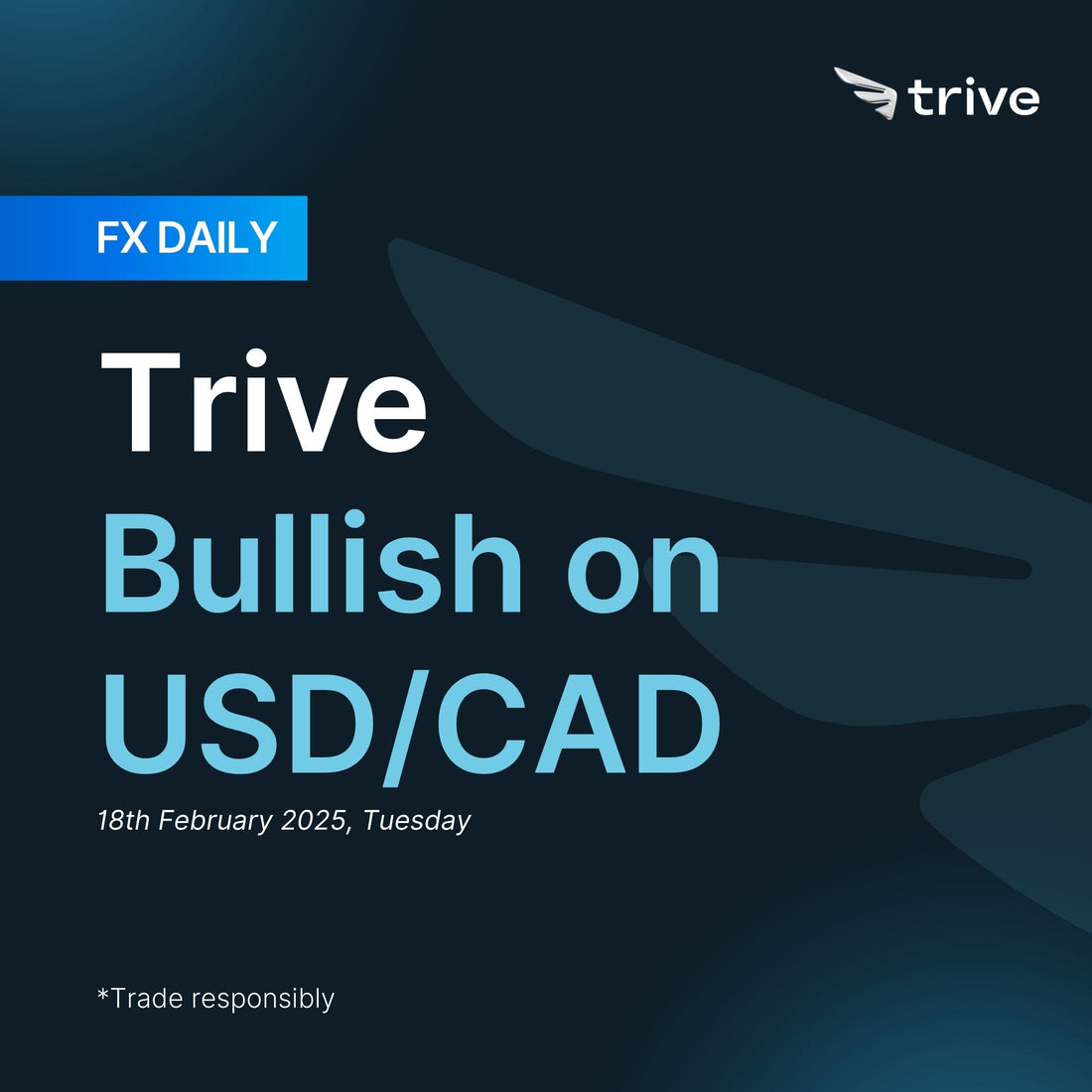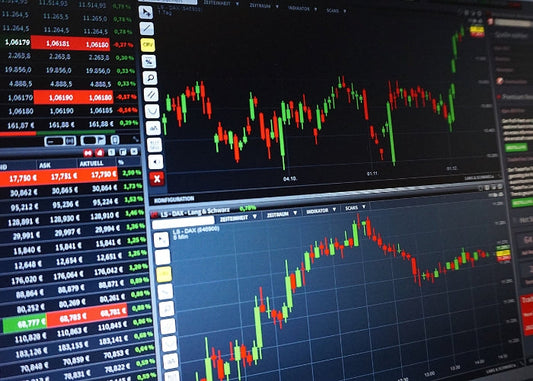FX Daily: Trive Bearish on EUR/USD

It is too early to say that EUR/USD has reached a turning point. A peace deal for Ukraine remains challenging, while the Eurozone's outlook remains uncertain, and the ECB may maintain its dovish stance. Meanwhile, the U.S. economy remains resilient, and the threat of tariffs is a more significant driver for the USD and the FX market.
EUR: It is too early to celebrate
Over the past week, the EUR has rebounded, driven by several factors. First, optimism about a potential end to the war in Ukraine has outweighed concerns about the Eurozone’s weak economic outlook and the ECB’s dovish stance. Second, markets no longer view the threat of US tariffs as imminent, as the implementation of reciprocal tariffs has been delayed by several months, allowing trading partners time to adjust their strategies. However, risks surrounding tariffs remain significant. Former President Trump’s directive to base “reciprocity” not only on tariffs but also on non-tariff factors—such as VAT rates, exchange rates, and regulatory barriers—adds layers of complexity. This is particularly relevant given Trump’s previous statements that tariffs on the European Union will “definitely happen,” keeping the threat of trade tensions alive.
While a potential resolution to the conflict in Ukraine could usher in a period of relative economic calm, lower energy prices, and a reconstruction boom that might support the Eurozone’s economic outlook, markets remain cautious. The single currency continues to face headwinds from the risk of a Eurozone recession, political uncertainty, and the looming threat of a trade war with the US. Additionally, the ECB’s easing cycle could further position the EUR as an attractive funding currency, limiting its upside potential in the medium term.
Looking ahead, market attention will focus on geopolitical developments, Eurozone PMI data, the German ZEW economic sentiment index, and the outcome of the German vote on 23 February for signs of economic stabilization. Despite the recent rebound, the EUR’s strength may be short-lived unless there is tangible progress on geopolitical or economic fronts, with trade tensions and ECB policy acting as persistent headwinds in the near term. That said, the EUR could continue to enjoy strength within this ‘peace dividend’ until the final outcome of geopolitical and trade developments becomes clear.
USD: Don’t chase the correction
Over the past week, the USD has shown relative softness compared to other G10 currencies, driven by two key factors. First, markets do not perceive President Trump’s reciprocal tariffs—signed last week—as an immediate threat , viewing them more as a negotiating tactic than a definitive policy shift given it will be impletment by 2 April. Second, optimism around a potential Russia-Ukraine ceasefire has improved risk sentiment, with Trump claiming a “productive call” with both leaders and suggesting the war could end “immediately.” Additionally, recent US macroeconomic data reinforced the Federal Reserve’s cautious easing path, signaling that while rates may remain on hold for now, disinflation trends remain intact. However, risks surrounding tariffs remain significant. Trump’s directive to base “reciprocity” not only on tariffs but also on non-tariff factors—such as VAT rates, exchange rates, and regulatory barriers—adds layers of complexity. These factors are harder to quantify and could lead to broader, more disruptive implementation of reciprocal tariffs. This uncertainty underscores that the current USD dip is likely a correction, not a structural downtrend, and ongoing trade policy ambiguity should continue to support the dollar until clarity emerges.
On the domestic front, Federal Reserve Chair Jerome Powell’s two-day Congressional testimony provided little new insight, as he reiterated the Fed’s patient stance. Powell emphasized that long-term inflation expectations remain “well anchored,” the labor market is not fueling inflationary pressures, and the FOMC will take a data-dependent approach. The January CPI and PPI reports further validated this narrative. The January CPI surprised to the upside, with headline and core inflation rising 0.5% and 0.4% month-on-month, respectively. However, markets attributed the jump to residual seasonality and components like auto insurance and hospital services, which do not directly feed into the Fed’s preferred core PCE measure. Meanwhile, the January PPI also came in hot, but components linked to the PCE deflator softened, aligning with the Fed’s view that disinflation remains on track. Powell’s repeated message—that the Fed will not overreact to one or two data points—calmed markets, reinforcing expectations that rate cuts will proceed cautiously.
Looking ahead, the US economic calendar is light in the near term, with only a handful of Fed speeches and preliminary PMI data on tap. Fed officials are likely to echo Powell’s cautious tone, while PMIs are expected to reflect continued economic resilience. Market attention will remain laser-focused on two key areas: Trump’s tariff rhetoric and Russia-Ukraine developments. Any escalation in tariff rhetoric or expansion of tariff targets (e.g., inclusion of non-tariff factors) could reignite USD strength. While a Russia-Ukraine ceasefire would boost risk sentiment, its impact on the USD is likely secondary to trade policy risks. Overall, the USD’s baseline outlook remains supportive, anchored by Fed patience, structural trade policy uncertainty, and global safe-haven demand. A sustained downtrend would require either a significant reversal in tariff policies or a definitive resolution to the Russia-Ukraine conflict—neither of which appears imminent.
 EUR/USD 4H
EUR/USD 4H
Disclaimer
This material is provided for informational purposes only and does not constitute financial, investment, or other advice. The opinions expressed in this material are those of the author and do not necessarily reflect the views of Trive International. No opinion contained in this material constitutes a recommendation by Trive International or its author regarding any particular investment, transaction, or investment strategy. This material should not be relied upon in making any investment decision.
The information provided does not consider the individual investment objectives, financial situation, or needs of any specific investor. Investors should seek independent financial advice tailored to their individual circumstances before making any investment decisions. Trive International shall not be liable for any loss, damage, or injury arising directly or indirectly from the use of this information or from any action or decision taken as a result of using this material.
Trive International may or may not have a financial interest in the companies or securities mentioned. The value of investments may fluctuate, and investors may not get back the amount they originally invested. Past performance is not indicative of future results.
For more information about Trive International, please visit http://trive.com/int
Additional Information
Investing involves risk, including the potential loss of principal. Diversification and asset allocation strategies do not ensure a profit or guarantee against loss. The content in this material is subject to change without notice and may become outdated or inaccurate over time. Trive International does not undertake any obligation to update the information in this material.
By accessing this material, you acknowledge and agree to the terms of this disclaimer. If you do not agree with these terms, please refrain from using this information.
No comments
Home
Trive
TriveHub





0 comments